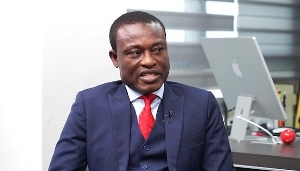An impressive growth rate boosts regional pivot status.
Automation, a greater inflow of foreign portfolio investment and more regional listings. These are among the goals of the Ghana Stock Exchange (GSE) following a sound performance over the past year.
At a time when international Stock Exchanges have largely been in the doldrums, the small emerging market in Accra has racked up an impressive 47% growth in cedi terms. More impressively, from an international investor viewpoint, this translated, after the exchange rate slump of some 15% in the local currency, to a 32% gain in dollar terms.
This came despite a fall in volume of trade and a decline in turnover. Over the year, 44.12m shares valued at C89,410.66m were traded as compared with 55.30m shares valued at C92,276.14m in 2001. Market capitalisation has, however, risen 58.4% to C6.183bn, as against C3.904bn in December 2001.
Since the overall index has outstripped bond rates of 26.3% and the 14% inflation rate, the GSE provides and obvious attraction for local savings. The outlook for 2003 seems unchanged and local analysts such as Yofi Grant, executive director of Databank Financial Services, are decidedly bullish about what they see as a new era for the GSE.
Grant points to the recent cross-border listing of Gambia's Trust Bank as the major breakthrough. The listing sent out a signal throughout the region that the GSE is ready and willing to act for companies seeking capital.
He said, `This development is a good omen, sending signals to other countries that do not have stock exchanges, that they can still trade and also heighten international interest in the GSE's potential of raising capital for development.'
Among the top performing shares over the past year were several established international counters such as Ashanti Goldfields, British American Toabcco and the local Unilever subsidiary. Others in the top ten were Ghana Commercial Bank, Patterson Zochonis, Fan Milk, Mechanical Lloyd, SSB Bank and Enterprise Insurnce.
According to the GSE's head of marketing and research, Ekow Afedzie, despite the positive gains and the bullish market trend, the turnover of shares traded was below that for 2001. He said that the market would now put in place `plans and strategies' to ensure that it becomes a pivotal point for regional capital mobilisation. Part of this should include a delayed automation project for which the World Bank has already earmarked $1.4m. (Africa Analysis 24/1)
Business News of Monday, 10 March 2003
Source: Africa Research Bulletin (ARBE)
















